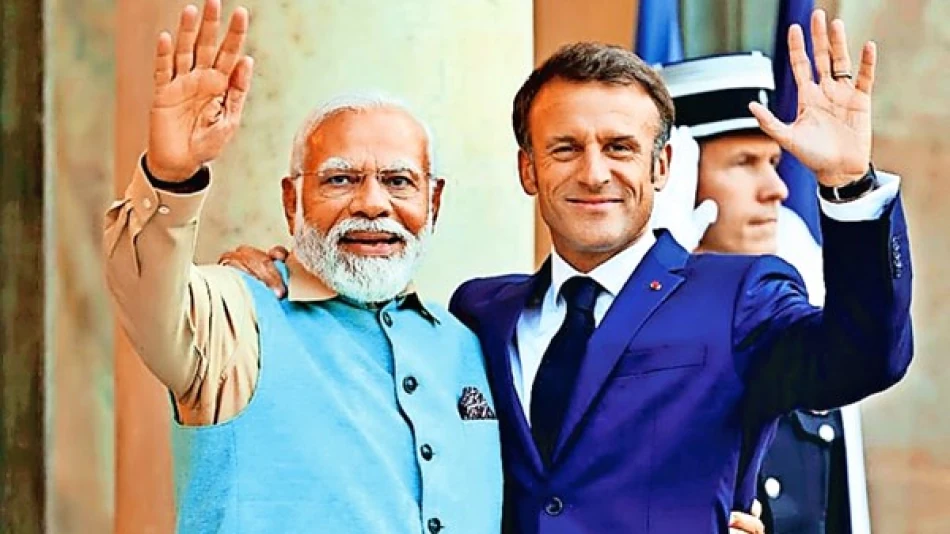
Macron and Modi Discuss Resolving Conflicts in Ukraine and Gaza
India and France Deepen Diplomatic Ties as Modi and Macron Tackle Global Crises
Indian Prime Minister Narendra Modi and French President Emmanuel Macron held strategic talks on Thursday, focusing on peace efforts in Ukraine and the Middle East while strengthening bilateral cooperation. The discussion signals India's growing role as a diplomatic bridge-builder amid escalating global conflicts, positioning New Delhi as a key mediator between Western allies and non-aligned nations.
Ukraine and Middle East Dominate Agenda
The leaders exchanged perspectives on peaceful resolution mechanisms for ongoing conflicts in Ukraine and West Asia, according to Indian authorities. Modi described the conversation as "very good" in a social media post, emphasizing their shared commitment to diplomatic solutions over military escalation.
Macron briefed Modi on recent Washington meetings between European, American, and Ukrainian leaders, while also addressing the deteriorating situation in Gaza. This exchange reflects France's role as a key NATO ally seeking to build consensus among diverse international partners, particularly as Western unity faces strain over prolonged conflicts.
Strategic Partnership Takes Center Stage
Beyond crisis management, both leaders reaffirmed their commitment to enhancing their "strategic partnership" — a relationship that has gained momentum as India pursues a multi-alignment foreign policy. This approach allows New Delhi to maintain strong ties with traditional partners like Russia while deepening cooperation with Western democracies.
Economic and Defense Implications
The strengthened India-France axis carries significant implications for global trade and security architecture. France has emerged as a crucial defense supplier to India, with deals including Rafale fighter jets and submarine technology transfers. This partnership offers France access to India's massive market while providing India with advanced European technology and diplomatic leverage.
India's Diplomatic Balancing Act
Modi's engagement with Macron exemplifies India's calculated strategy of maintaining relationships across geopolitical divides. Unlike countries forced to choose sides, India leverages its position as the world's most populous democracy and fastest-growing major economy to engage simultaneously with the United States, Russia, China, and European powers.
This approach has proven particularly valuable during the Ukraine crisis, where India has avoided Western sanctions on Russia while maintaining dialogue with NATO allies. Such positioning allows India to potentially serve as a mediator in future peace negotiations — a role that could enhance its global standing significantly.
Broader Geopolitical Context
The Modi-Macron dialogue occurs against a backdrop of shifting global alliances and emerging multipolar dynamics. As traditional Western-led institutions face challenges, middle powers like India are asserting greater influence in international affairs. France, seeking to maintain relevance beyond the European sphere, views partnership with rising powers as essential for preserving its global influence.
This diplomatic engagement also reflects growing recognition that sustainable solutions to complex conflicts require involvement from diverse stakeholders, not just traditional power brokers. India's unique position — maintaining relationships with conflicting parties while commanding respect as a democratic giant — makes it an increasingly valuable diplomatic partner for countries like France seeking comprehensive approaches to global challenges.
Most Viewed News

 Layla Al Mansoori
Layla Al Mansoori






